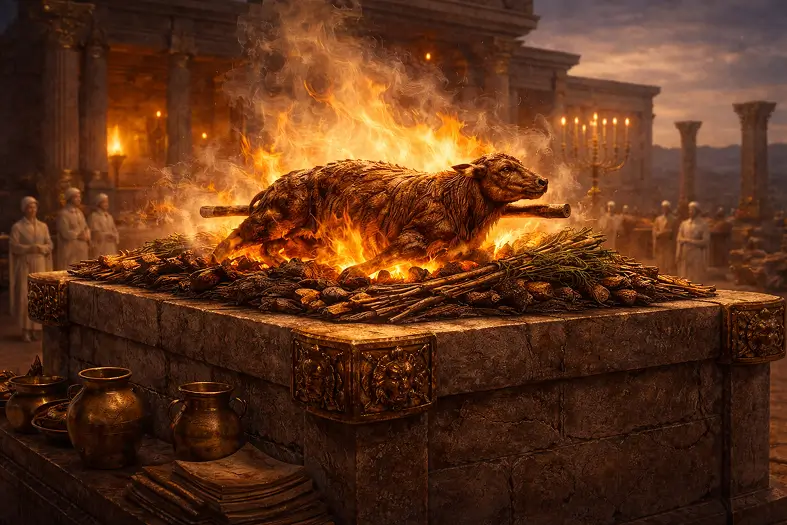


A hired servant, whether permanent or temporary, may not eat from the Korban Pesach.
This mitzvah forbids both permanent residents (toshavim) who dwell without covenantal status and hired servants (sechirim) from eating the Korban Pesach. Rambam (Hilchot Korban Pesach 9:7) rules that such individuals, while part of a Jewish household, are not covenantally bound and therefore excluded from the Pesach meal.
Sefer HaChinuch (Mitzvah 14) explains that the Pesach korban is the meal of covenantal membership; only those fully committed to Hashem and Israel may partake. The Talmud (Pesachim 96b) interprets this verse as excluding anyone attached only by economic or social ties, not covenant. Rashi (Ex. 12:45) clarifies that the Pesach is for members of Israel who are fully sanctified through circumcision and faith, not for temporary or contractual participants. Ramban adds that allowing them to eat would blur the boundary between covenantal loyalty and mere affiliation.
Commentary & Classical Explanation:
Contrast with Inclusion of Circumcised Converts (Mitzvah 14 & Mitzvah 414):
Parallel to Exclusion of Apostates (Mitzvah 412):


Represents Emunah—the deep, inner trust in Hashem’s presence, oneness, and constant involvement in our lives. This badge symbolizes a heartfelt connection to G-d, rooted in belief even when we cannot see. It is the emotional and spiritual core of many mitzvot.
Represents the concept of spiritual intentionality, purity, and sanctity—set apart for a higher purpose.
Mitzvot that strengthen communal life — showing up, participating, supporting, and belonging. Community is where holiness is shared, prayers are multiplied, and responsibility becomes collective.
Signifies awe and reverence toward Hashem—living with awareness of His greatness and presence.
Mitzvot that define and deepen the relationship between a person and their Creator. These include commandments involving belief, prayer, Shabbat, festivals, sacrifices, and personal holiness — expressions of devotion rooted in divine connection.

Dive into mitzvos, prayer, and Torah study—each section curated to help you learn, reflect, and live with intention. New insights are added regularly, creating an evolving space for spiritual growth.

Explore the 613 mitzvos and uncover the meaning behind each one. Discover practical ways to integrate them into your daily life with insights, sources, and guided reflection.

Learn the structure, depth, and spiritual intent behind Jewish prayer. Dive into morning blessings, Shema, Amidah, and more—with tools to enrich your daily connection.

Each week’s parsha offers timeless wisdom and modern relevance. Explore summaries, key themes, and mitzvah connections to deepen your understanding of the Torah cycle.